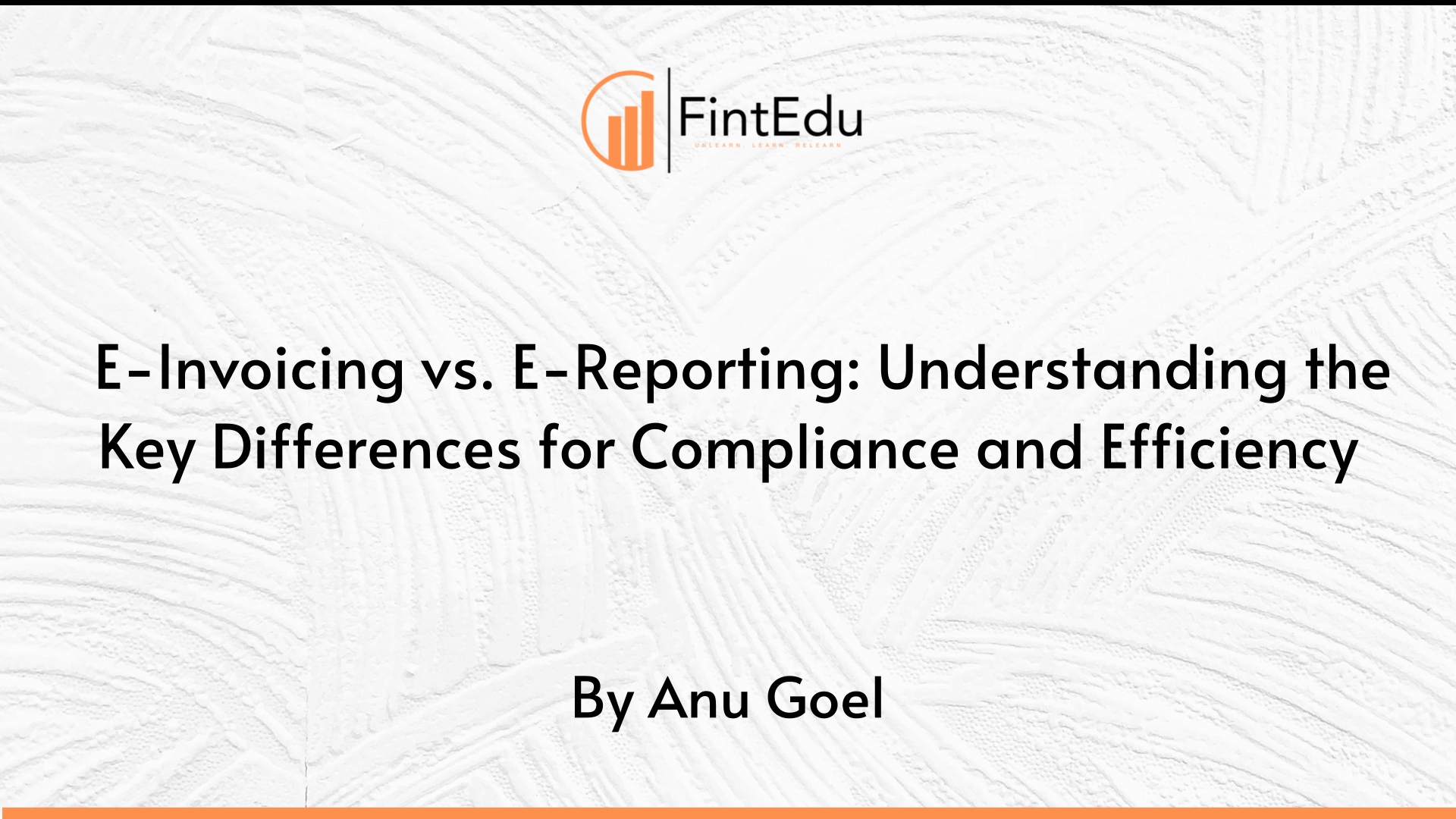LISTEN TO THIS ARTICLE
At first glance, e-invoicing and e-reporting may seem similar as both involve the electronic exchange of financial data. However, they serve distinct purposes and are not interchangeable. While e-invoicing focuses on the digital transmission of invoices between businesses, e-reporting is primarily concerned with submitting transactional data to tax authorities to ensure regulatory compliance. Understanding these differences is critical for businesses looking to meet both operational and regulatory demands.
Purpose
- E-Invoicing: Automates and digitizes the invoice lifecycle between suppliers and buyers, improving operational efficiency, reducing manual errors, and speeding up payment processes.
- E-Reporting: Ensures regulatory compliance by submitting transaction data to tax authorities for monitoring tax obligations, such as VAT or sales tax.
Scope
- E-Invoicing: Focuses on individual transactions between two parties (buyer and seller).
- E-Reporting: Involves reporting summaries or detailed data from multiple transactions, typically sent in bulk to tax authorities.
Process Flow
- E-Invoicing: Invoice is generated electronically, transmitted through approved networks (e.g., PEPPOL), and may require clearance from tax authorities before being accepted by the buyer.
- E-Reporting: Transaction data is aggregated and electronically submitted to tax authorities at specified intervals, often in real time or periodically.
Data Format
- E-Invoicing: Structured formats like XML (UBL, PEPPOL BIS) are used for interoperability and automation between business systems.
- E-Reporting: Formats are often dictated by local regulations, such as SAF-T in Europe, and can vary based on the type of data required by authorities.
Real-Time vs. Periodic Submission
- E-Invoicing: Transactions are recorded and transmitted in real time, facilitating instant verification and payment processing.
- E-Reporting: Can be real-time (for specific jurisdictions) but is more often periodic, where businesses report their total taxable transactions over a set period (monthly, quarterly, etc.).
Stakeholders
- E-Invoicing: Primary stakeholders are buyers and suppliers, with tax authorities sometimes involved in a clearance model.
- E-Reporting: Focuses on the relationship between businesses and tax authorities to ensure compliance with legal tax obligations.
Compliance Requirements
- E-Invoicing: Regulatory requirements may differ by country, with some mandating the use of electronic invoicing.
- E-Reporting: Compliance involves detailed data submission that adheres to strict deadlines and formats required by tax authorities to avoid penalties.
Integration with ERP Systems
- E-Invoicing: Often seamlessly integrated into ERP or accounting systems, allowing automatic invoice creation, sending, and receiving.
- E-Reporting: Requires specific tools to extract, format, and submit large volumes of transaction data directly from business systems to authorities.
E-invoicing and e-reporting serve complementary but distinct functions in the digital economy. E-invoicing improves efficiency between businesses, while e-reporting focuses on regulatory compliance with tax authorities. For businesses, mastering both is essential to ensure smooth operations in today's digital regulatory environment.
Disclaimer: Content posted is for informational and knowledge sharing purposes only, and is not intended to be a substitute for professional advice related to tax, finance or accounting. The view/interpretation of the publisher is based on the available Law, guidelines and information. Each reader should take due professional care before you act after reading the contents of that article/post. No warranty whatsoever is made that any of the articles are accurate and is not intended to provide, and should not be relied on for tax or accounting advice



